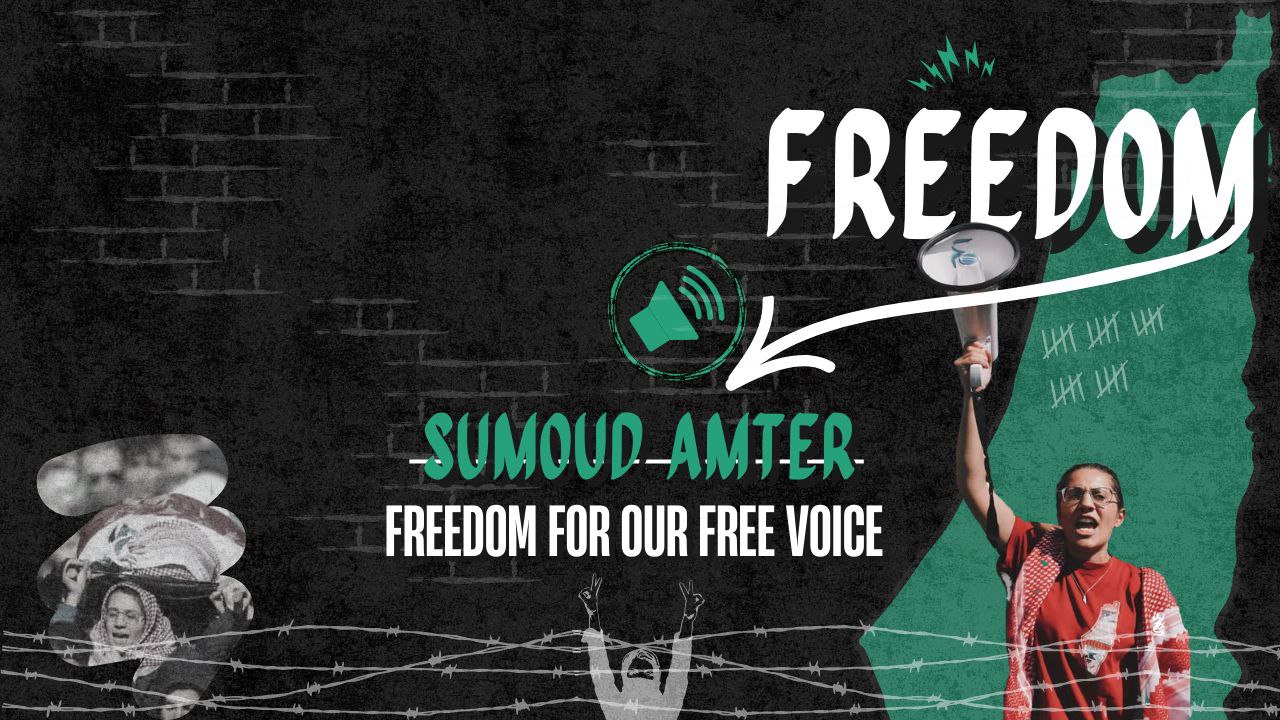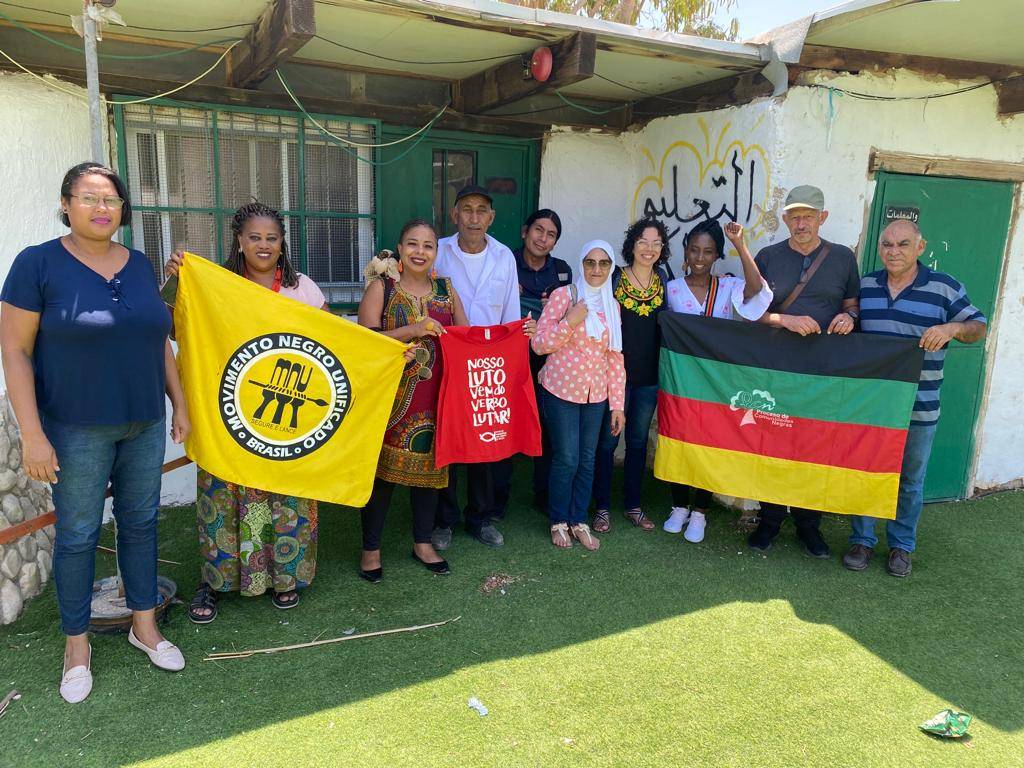A four-part info session for tech workers and activists who don’t want to be complicit in – and instead contribute to ending – Israeli oppression of the Palestinian people.
Workers in the tech industry have a long history of organizing and standing up against apartheid and oppression. This spans from the early days when tech workers at Polaroid organized the first boycott campaign of a US company during the anti-apartheid movement to protest the use of the instant cameras for the South African pass system to more recent campaigns that led to Microsoft divesting from Israel’s Anyvision, which produces the facial recognition technology used at Israeli checkpoints, to the campaign to pressure Google and Amazon to stop their Project Nimbus providing cloud services to Israel’s government and military.
On January 26, the International Court of Justice ruled on the plausibility of genocide in Gaza and issued a binding order for Israel to immediately stop and prevent all genocidal acts. As Israel, fully backed by the US government, simply ignores the ruling, states, corporations, and people carry even more stringent legal and ethical obligations to avoid complicity and act to stop Israel’s crimes.
Why is the role of tech workers in Palestine solidarity so important and what are the most effective and impactful ways of organizing? What do Palestinian movements call for?
The following are four conversations with researchers and campaigners working with Palestinian movements and international organizations on what to do.
3. Hi-tech powered genocide in Gaza
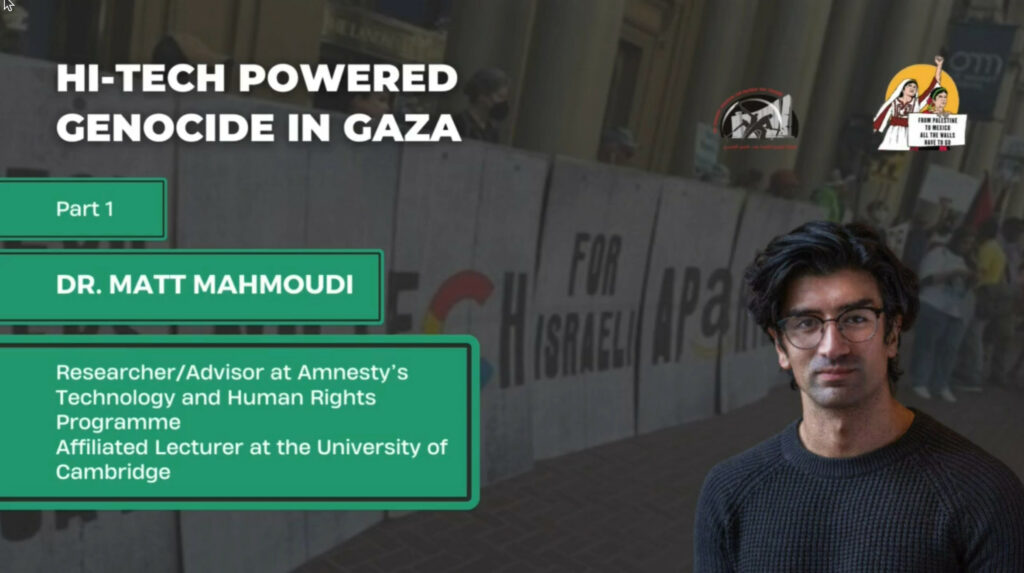
Israel’s genocide in Gaza is powered by hi-tech, whether this is Israel’s cyber war rooms, ubiquitous surveillance, or Israel’s use of AI to produce in a shorter period of time longer lists of supposedly ‘rational’ targets to be bombed in Gaza. At the same time, Israel fully controls Palestinian telecommunications, including its internet shutdowns. Big tech is part of Israel’s propaganda machine, manipulating algorithms and censoring Palestinian and pro-Palestinian voices.
The net of complicity between Israel’s military and state machine, its human rights violations, war crimes, its apartheid regime and now genocide, and international tech companies, from Big Tech to start-ups, has developed over decades and is closely knit.
How deep is the Israeli and international tech sector involved in Israel’s Gaza genocide?
How does this system work that interlinks Israeli oppression of Palestinians and the global tech sector? Who profits from what?
What is the legal and ethical responsibility of tech business?
Date/Time: March 7, 9am PST time – noon time EST
Speaker:
Dr Matt Mahmoudi – Researcher/Advisor on Artificial Intelligence & Human Rights at Amnesty’s Technology and Human Rights Programme, and Affiliated Lecturer in Sociology at the University of Cambridge
2. Living Israel’s high tech system of oppression
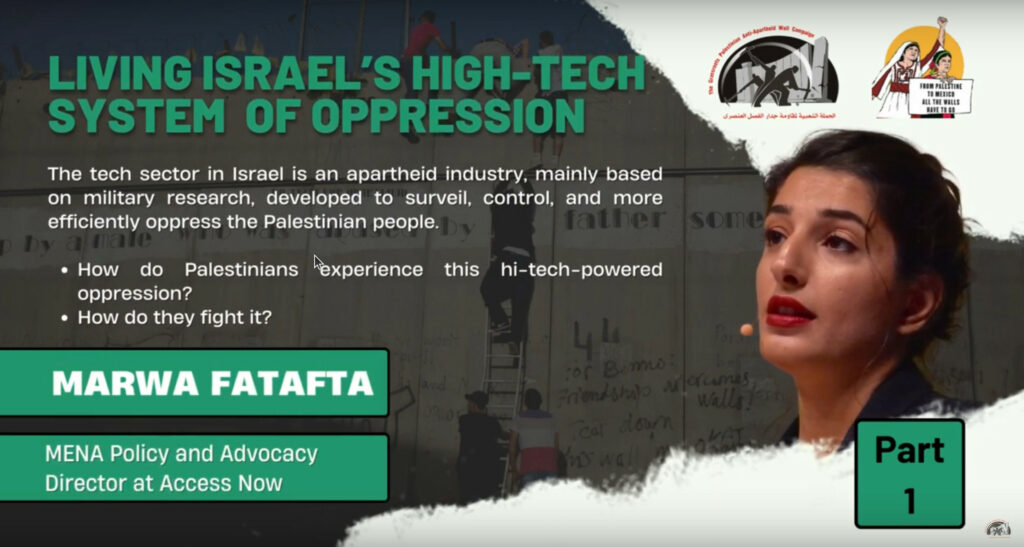
The tech sector in Israel has been developed, mainly based on military research. This research is developed to surveil, control and more efficiently oppress the Palestinian people. It is tested on their bodies and land. It is then channeled to build Israeli start-ups or sold to international tech companies.
With less than 2% of its workforce being Palestinians, Israel’s hi-tech is an apartheid industry structurally excluding indigenous Palestinians and directly developed to repress them.
How do Palestinians experience this hi-tech powered oppression? How do they fight it?
Date/Time: March 14, 9am PST time – noon time EST
Speaker:
Marwa Fatafta, Access Now
3. Israel’s shutdown Start Up economy
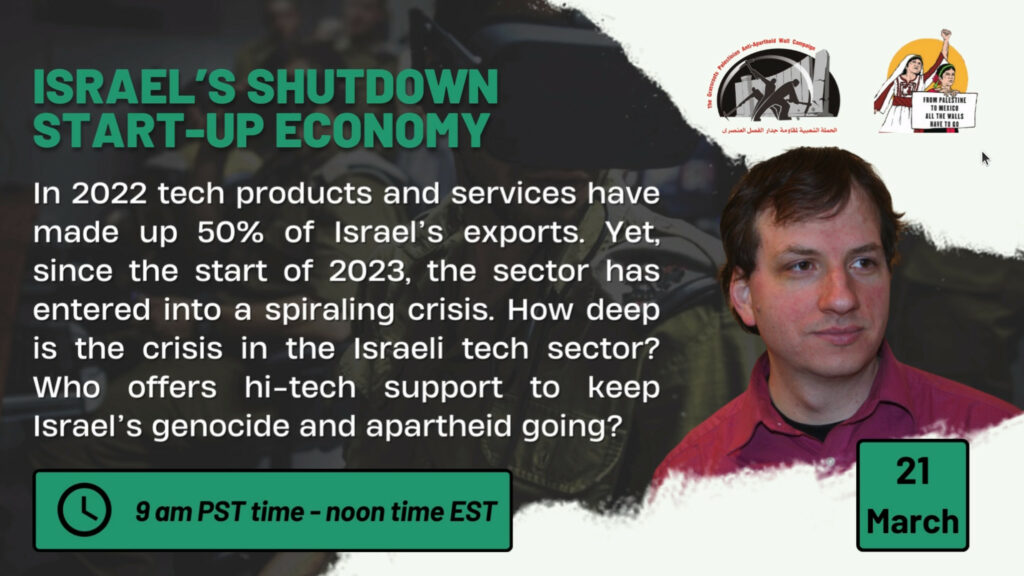
In 2022 tech exports have made up 50% of Israel’s exports. Yet, since the start of 2023 the sector has entered into a spiraling crisis. Initial investments in Israeli startups dropped by 90% in Q1 of 2023, as compared to the same period in 2022 and investments in Israeli high-tech companies decreased by 68% in the first six months. By July, leading Israeli economist Eugene Kandel said, “Israeli high-tech may not exist in a decade, even without political instability.”
Today, Israel’s tech sector is in even worse conditions but some international corporations are ready to jump to rescue, defying risk analyses and obligations to their shareholders and, above everything else, the moral and legal duty not to aid and abet genocide and crimes against humanity, such as apartheid.
How deep is the crisis of the Israeli tech sector?
Who is ready to give the hi-tech support to keep Israel’s genocide and apartheid going?
Date/Time: March 21, 9am PST time – noon time EST
Speaker:
Shir Hever, political economist and coordinator for military embargo campaigns with the Palestinian BDS National Committee (BNC)
4. Building Palestine Solidarity
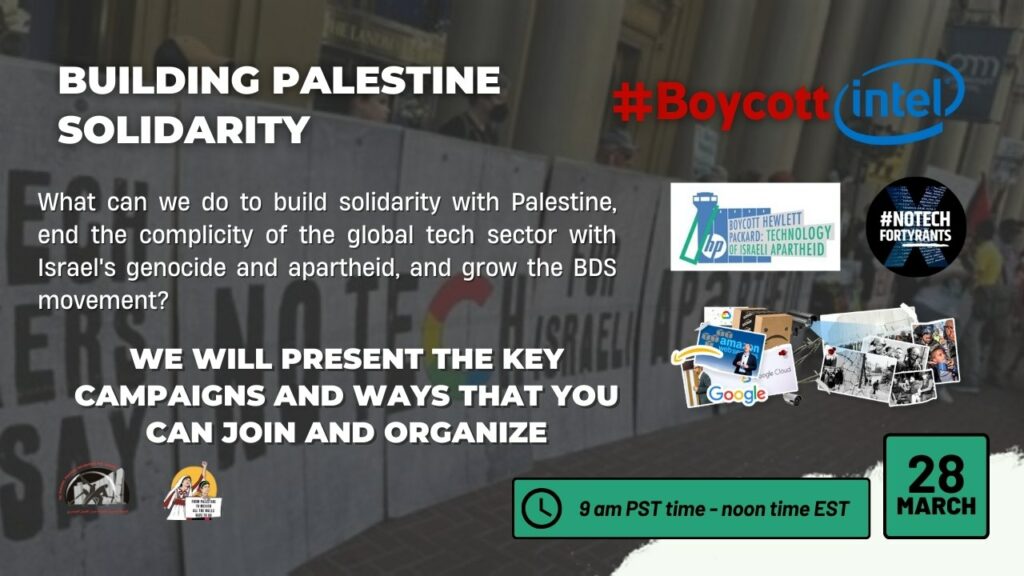
The Palestinian-led BDS movement has become, during the 19 years since it was launched in 2005, the main tool for citizens, activists, organizations and institutions to ensure meaningful solidarity. It essentially calls for an end to ties of complicity and an end of impunity in order to dismantle Israeli apartheid, colonialism and occupation. In times of genocide it is more urgent than ever.
The BDS movement has also helped to build intersectional solidarity and challenge Israeli propaganda, including pinkwashing, greenwashing and more.
What can tech workers do to meaningfully build solidarity with Palestine and/or to grow the BDS movement?
How can we contribute to ending complicity of the global tech sector with Israel’s colonial apartheid regime and genocide against the Palestinian people?
Date/Time: March 28, 9am PST time – noon time EST
Speakers:
Gayatri Khandhadai, Centre for Business and Human Rights
Mallika Balakrishnan, No Tech for Tyrants
Kate S, Tech Workers Coalition
Ryan Sorrell, Mapping Genocide Project
Apoorva Gautam, Palestinian BDS movement
.

